Navigating the choppy waters of financial planning, you've perhaps come across the term 'reverse mortgage'. It's a financial instrument that, put simply, allows you to convert part of your home equity into cash.
But before you dive headlong into this 'golden pond', it's crucial to realize that every rose has its thorns. Sure, there are benefits – like increased cash flow and no monthly payments – but there are also significant risks.
What are they? And, more importantly, how can you mitigate them? Stick around, you'll want to know.
Key Takeaways
- Reverse mortgages allow Vancouver homeowners aged 62 and above to convert home equity into cash, offering financial stability in retirement.
- These mortgages come with risks, including reduced home equity, high closing costs, and possible scams, necessitating careful decision-making.
- Other options such as traditional mortgages or home equity lines of credit should be considered alongside reverse mortgages.
- Professional advice and understanding of personal financial needs and the Vancouver housing market can aid in making an informed decision about reverse mortgages.
Understanding Reverse Mortgages
While you may have heard the term, understanding reverse mortgages requires delving into the specifics of their functionality, benefits, and potential drawbacks. Essentially, reverse mortgages are loans that enable homeowners aged 62 and above to convert part of their home equity into cash. But don't let misconceptions cloud your judgment; let's debunk some common reverse mortgage myths.
Firstly, you're not signing your home away. The title remains in your name, and you're simply using your home as collateral. Secondly, your heirs aren't burdened with debt. The loan is repaid through the sale of the home, and any remaining equity is transferred to your heirs.
However, it's not a free-for-all. Specific mortgage eligibility criteria need to be met. You must live in the home as your primary residence, and you must maintain the property and pay property-related charges. Failure to meet these requirements can lead to the loan becoming due.
Understanding reverse mortgages fully is crucial before deciding whether it's a suitable financial strategy for you. Remember, knowledge is power, and misconceptions can lead to costly mistakes.
Key Advantages of Reverse Mortgages
Although they may seem complex, reverse mortgages offer several key advantages that can greatly contribute to your financial stability in retirement.
One of the main benefits is equity conversion. This means that you're able to convert the equity in your home into cash, providing a steady income stream. Plus, the loan doesn't need to be repaid until you sell your home, move out, or pass away.
Another advantage lies in the tax implications. The proceeds from a reverse mortgage are tax-free, which can significantly increase your net income, particularly if you're in a high tax bracket.
Let's summarize these advantages in the following table:
| Advantage | Description |
|---|---|
| Equity Conversion | Convert your home's equity into cash, providing steady income |
| Loan Repayment | The loan doesn't need to be repaid until you sell your home, move out, or pass away |
| Tax Implications | The proceeds from a reverse mortgage are tax-free |
The benefits of reverse mortgages can provide a financial cushion in your golden years. However, always ensure you understand the terms and conditions before proceeding. Your home is a significant asset, and it's crucial to make informed decisions about its use.
Potential Risks of Reverse Mortgages
Despite the compelling advantages of reverse mortgages, it's important to consider some potential risks associated with this financial tool. One of the main concerns is the financial implications. While you can certainly benefit from the immediate cash flow, remember that reverse mortgages do reduce your home equity, potentially leaving less wealth for your heirs.
Moreover, there's a risk of hidden costs. You might think you're only paying for the loan's interest, but there are other fees to consider. You'll have to pay for home insurance, property taxes, and potentially high closing costs, which can add up over time.
Another concern is the possibility of outliving the loan. If you spend the reverse mortgage funds too quickly or live longer than you expected, you may deplete your funds and still have years left to live.
Lastly, fraud and scams are rampant in the reverse mortgage industry. It's essential to work with a reputable lender and seek independent advice to avoid falling victim.
While reverse mortgages can provide short-term financial relief, it's crucial to weigh these risks carefully to make an informed decision. Don't rush into anything without understanding the potential downsides.
Deciding on a Reverse Mortgage
Given the potential risks associated with reverse mortgages, it's crucial to examine all your options and consider various factors before deciding on a reverse mortgage. You must weigh the pros and cons, taking into account your financial situation, future plans, and the market conditions in Vancouver.
It's beneficial to explore mortgage alternatives. Traditional mortgages or home equity lines of credit might be more suitable for your needs. These options can provide cash flow without the risk of losing your home to the lender, a serious concern with reverse mortgages.
Financial planning plays a critical role in this decision. You need to consider your retirement income, savings, investments, and other potential resources. Will a reverse mortgage provide the financial security you need, or will it drain your resources and leave you vulnerable?
Even if a reverse mortgage seems appealing, don't rush into it. Take your time to understand the terms, the fees involved, and the implications on your estate. Consult with a financial advisor for professional guidance. Remember, informed decisions are always the best decisions.
Reverse Mortgages in Vancouver: A Case Study
How about we delve into a real-world example to better understand the potential impact of reverse mortgages in Vancouver? Let's consider John, a 70-year-old homeowner with his house fully paid off. The Vancouver housing market, famous for skyrocketing prices, has significantly increased the value of John's property; it's now valued at $1.2 million. A reverse mortgage seems like a viable option for him.
John opts for a reverse mortgage, allowing him to tap into his home equity without having to sell. This move provides him with a substantial amount of money that he can use for his retirement planning. He doesn't have to worry about monthly mortgage payments, and he can continue living in his home.
However, the downsides are significant too. The interest on John's loan accumulates over time, reducing the equity left in his home. If John decides to sell, he might end up owing more than his home is worth due to the accruing interest. Moreover, his heirs will have to repay the loan if he passes away or moves out permanently.
In John's case, understanding the intricacies of the Vancouver housing market and anticipating future needs are critical for making informed decisions about reverse mortgages.
Frequently Asked Questions
What Is the Average Processing Time for a Reverse Mortgage in Vancouver?
You're asking about the processing time for a reverse mortgage in Vancouver. Typically, it takes about 30 to 45 days.
The mortgage application process can be influenced by various factors including the lender's workload and the impact of interest rates.
It's crucial to understand these aspects, as well as the potential risks and benefits of reverse mortgages, to make an informed decision.
Educate yourself thoroughly to avoid any unexpected surprises down the road.
Are There Any Specific Property Requirements to Be Eligible for a Reverse Mortgage in Vancouver?
Yes, there are specific property requirements.
For reverse mortgages in Vancouver, the eligibility criteria includes a property evaluation. Your home must meet certain standards to qualify. It's gotta be your primary residence, have sufficient equity, and be well-maintained.
Moreover, the type and location of your property can impact your eligibility. So, it's not just about age or income, your property itself plays a significant role in the process.
How Does a Reverse Mortgage Impact One's Taxes or Eligibility for Government Aid Programs in Vancouver?
You're asking how a reverse mortgage impacts your taxes and aid eligibility in Vancouver.
While a reverse mortgage isn't considered taxable income, it could potentially affect your eligibility for government aid.
It's crucial to understand these tax implications and how your aid eligibility might change.
Always consult a financial advisor before making decisions.
Is There an Option to Refinance a Reverse Mortgage in Vancouver?
Yes, you can refinance a reverse mortgage in Vancouver. However, it's crucial to understand the refinancing costs and how changes in interest rates can impact your loan.
You'll need to weigh the potential benefits against these costs. Consider seeking advice from a financial advisor to ensure you're making an informed decision.
It's not a process to be taken lightly, so make sure you're fully aware of the implications.
What Happens to a Reverse Mortgage if the Borrower Decides to Sell Their Property in Vancouver?
If you decide to sell your Vancouver property with a reverse mortgage, you'll need to navigate the selling process intricacies. The mortgage must be paid off from the sale proceeds. Any leftover funds are yours to keep.
However, it's important to consider the impact on heirs, as they won't inherit the property debt-free. It's like unraveling a knotted string; careful steps are needed to ensure you don't end up in a financial tangle.

